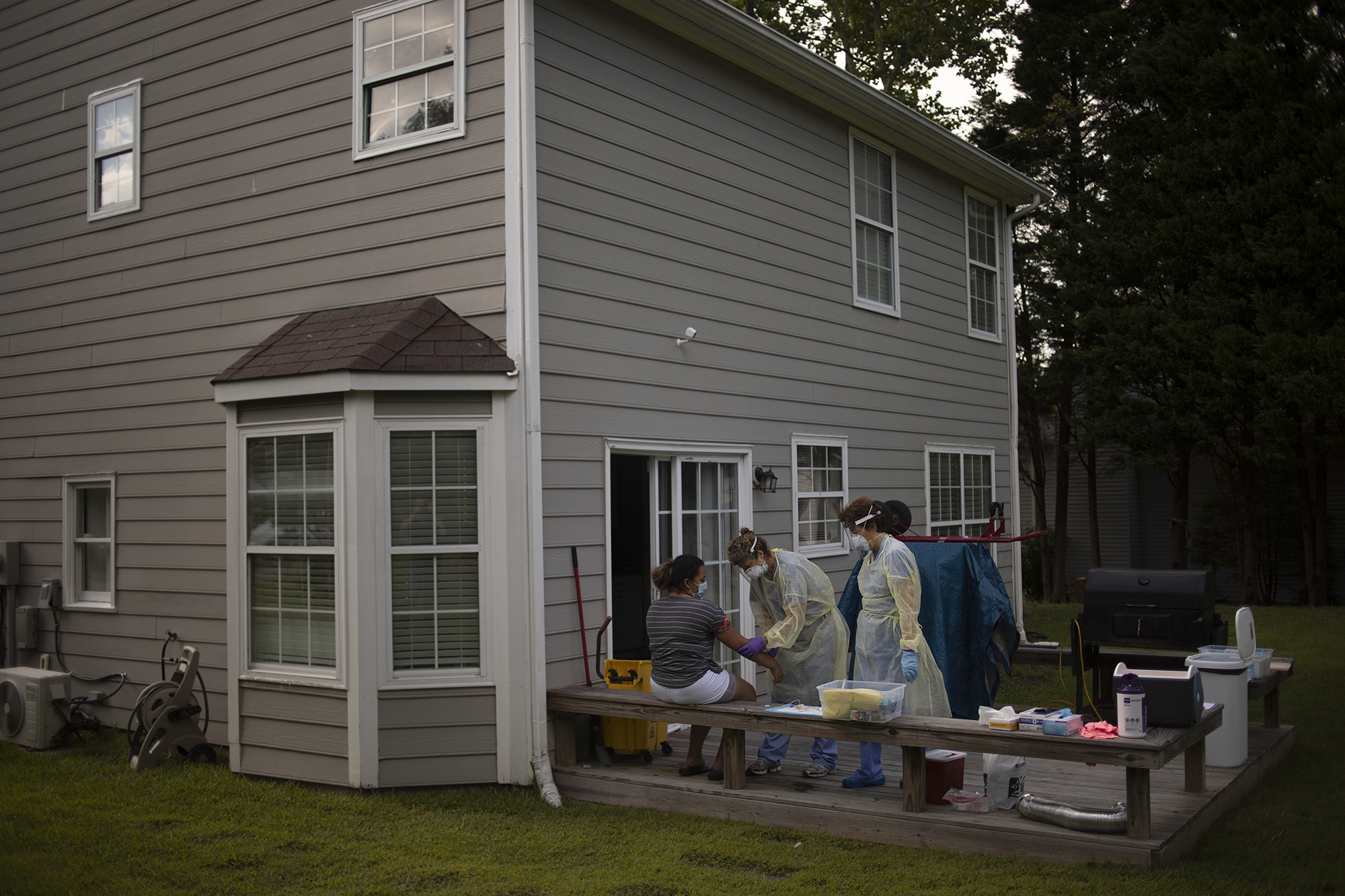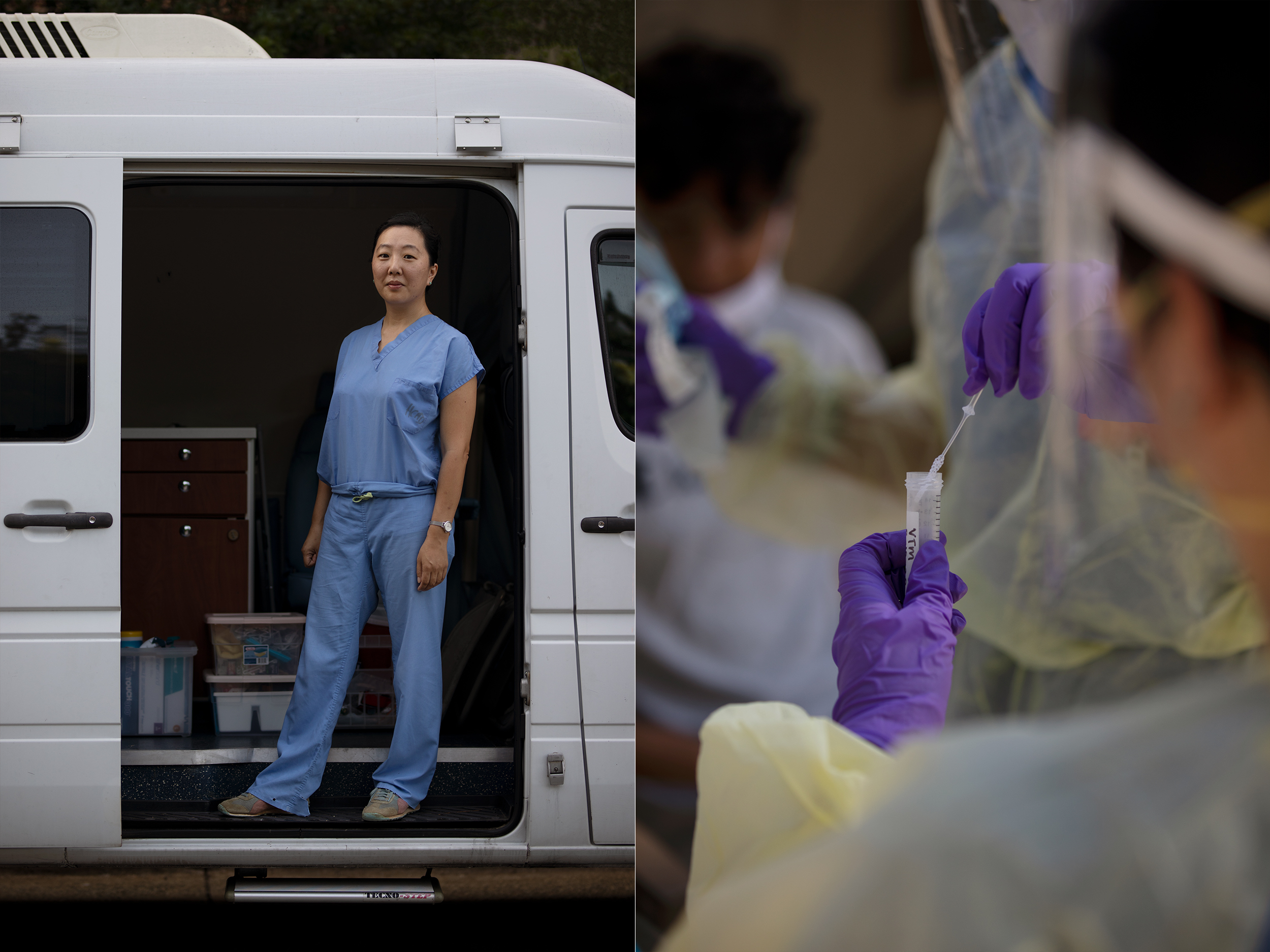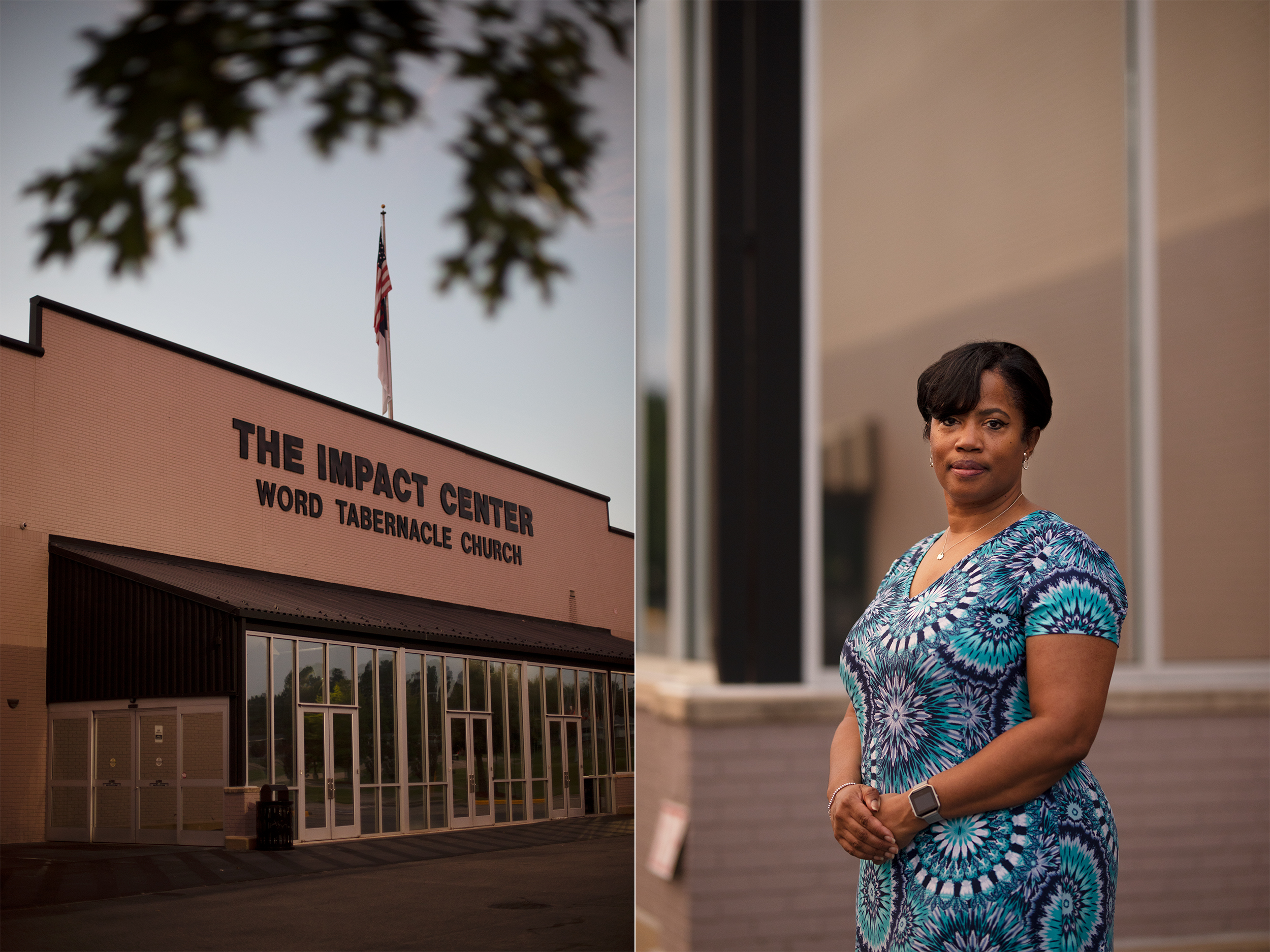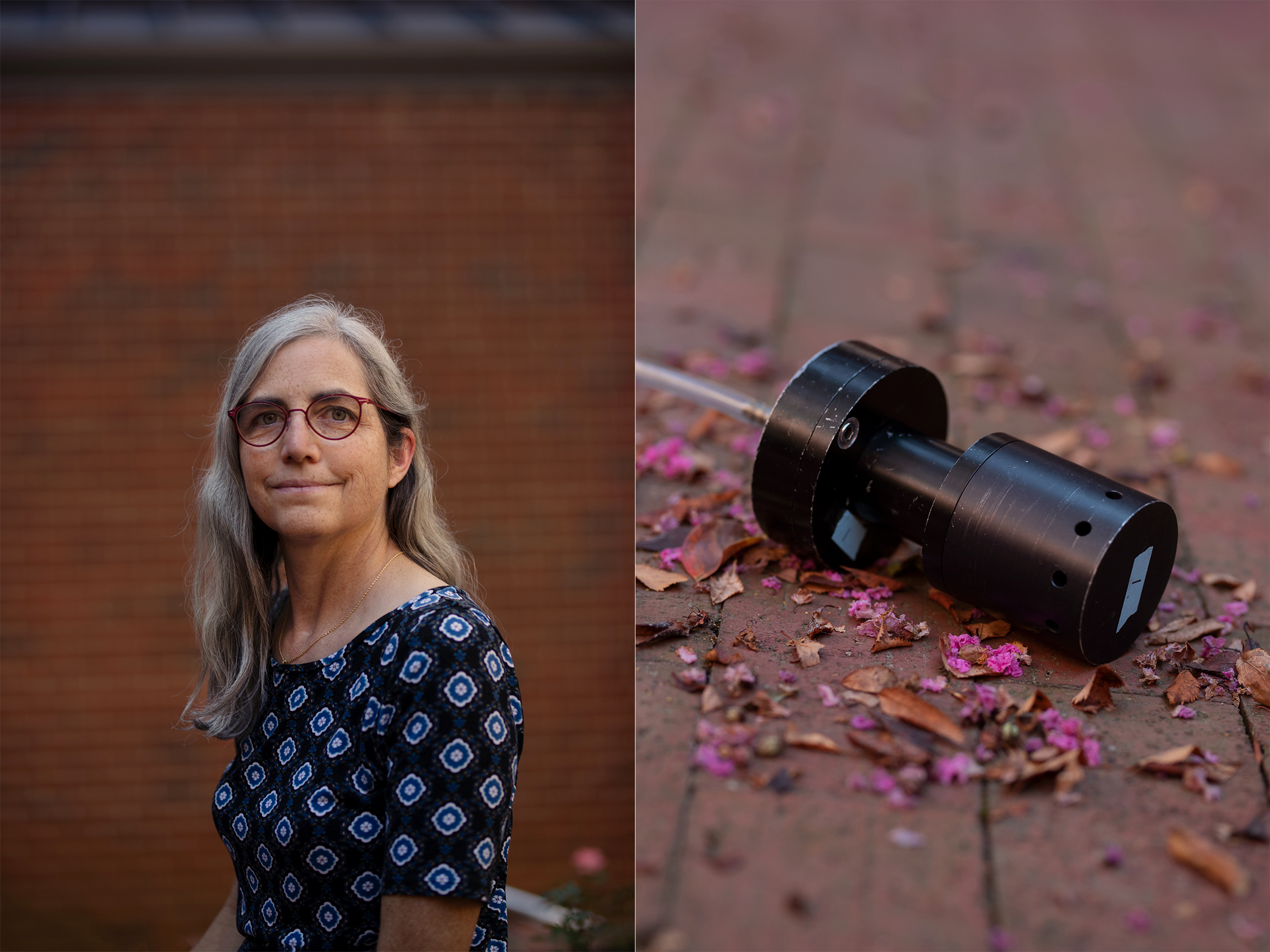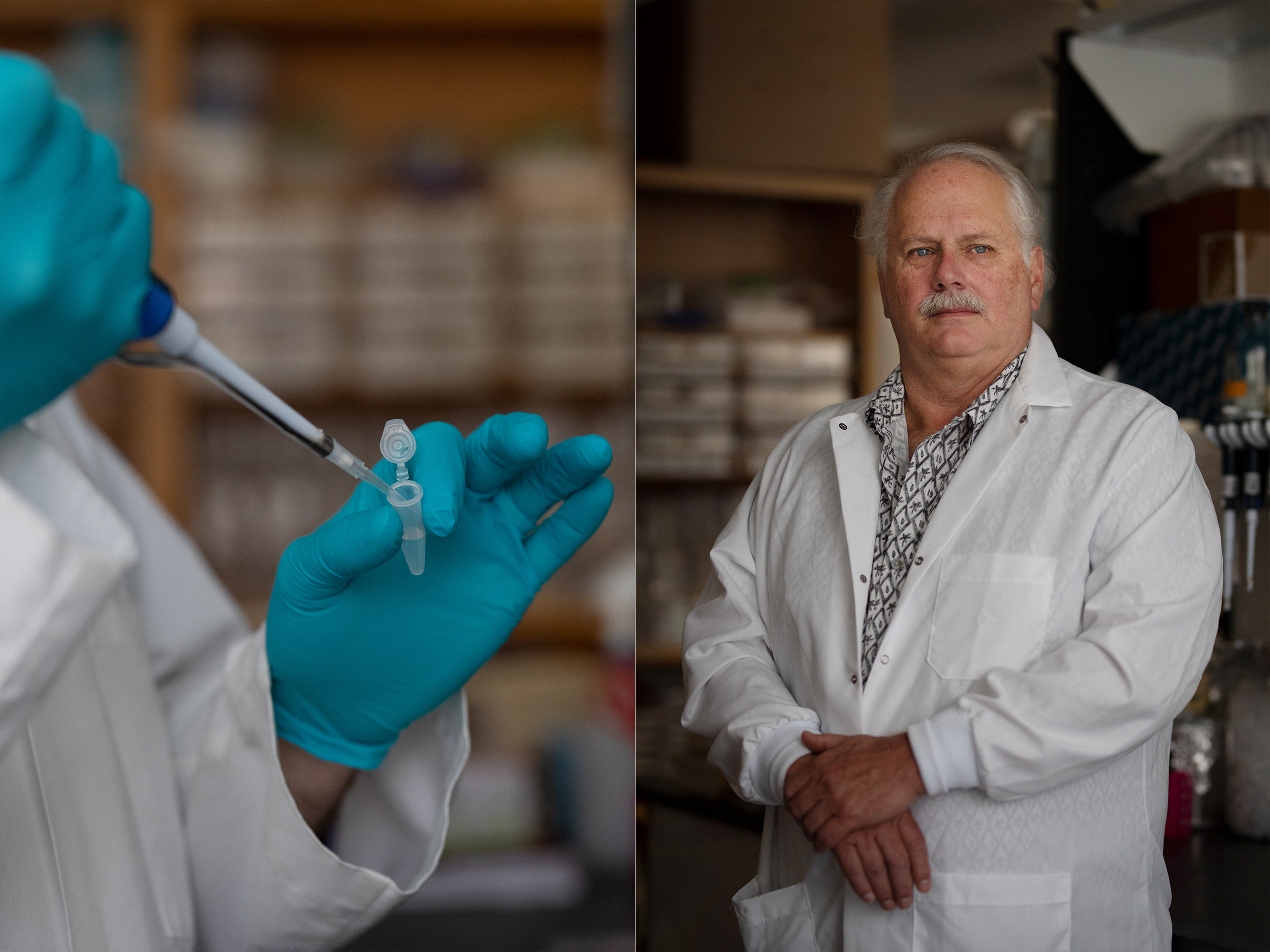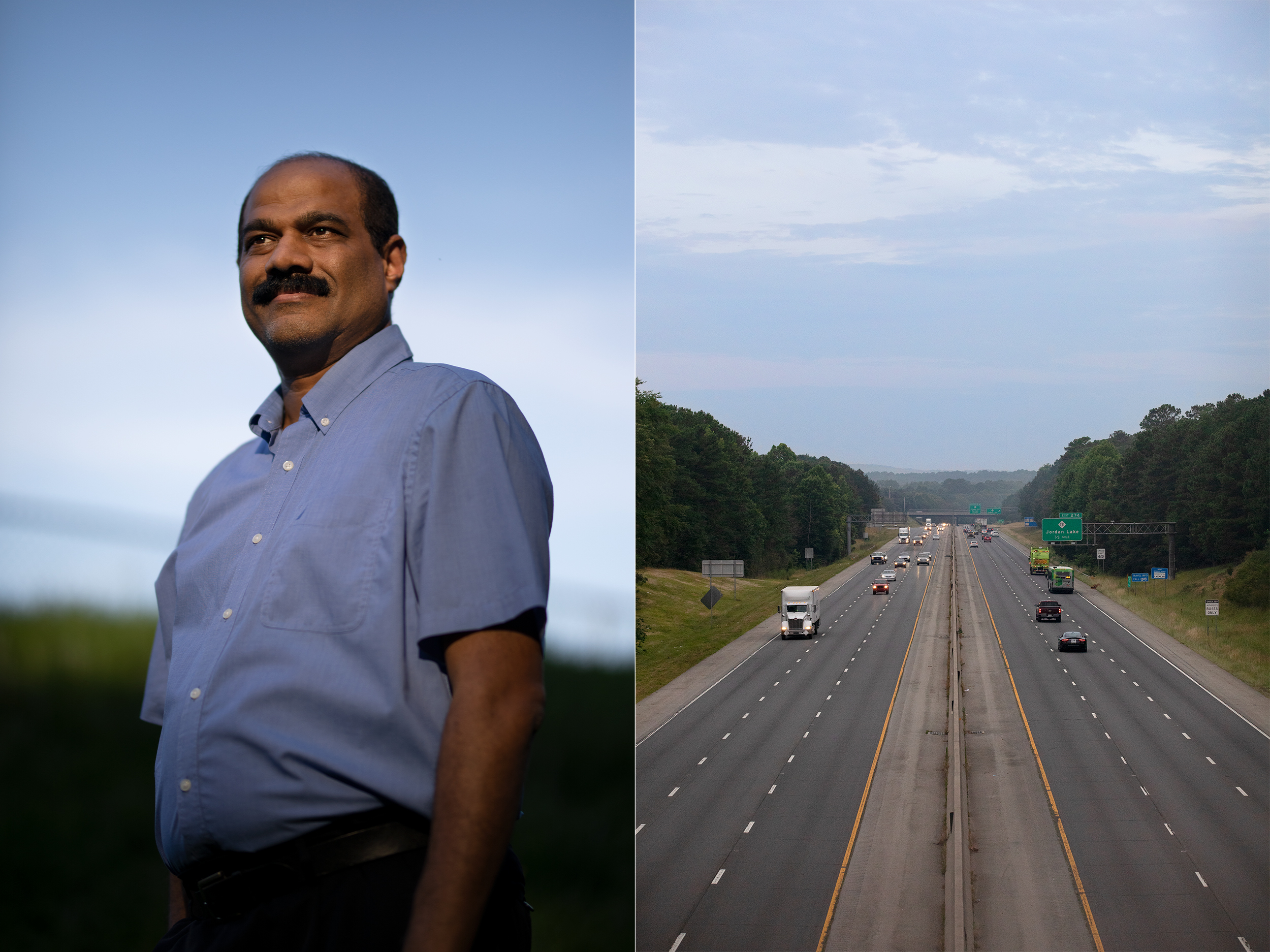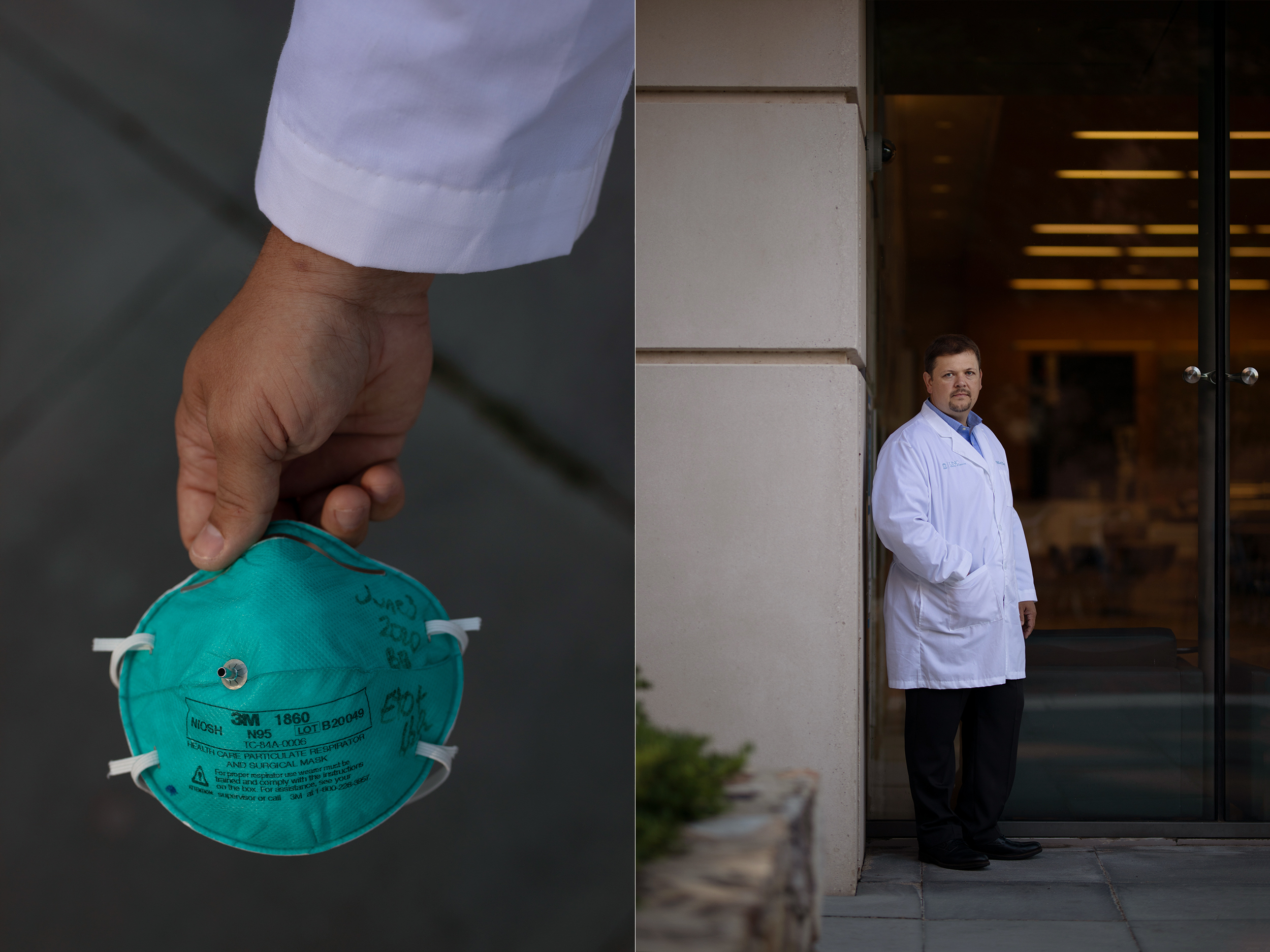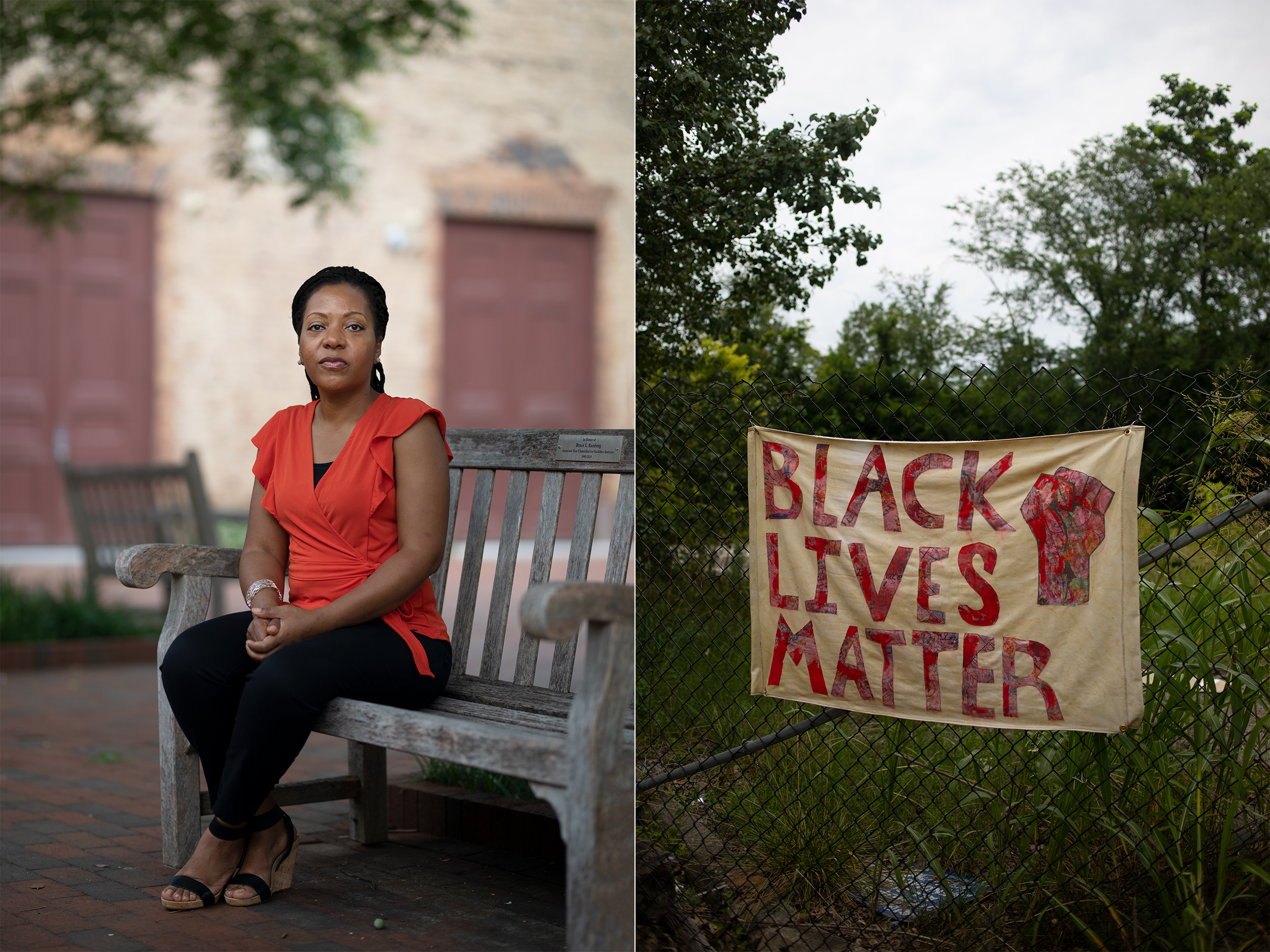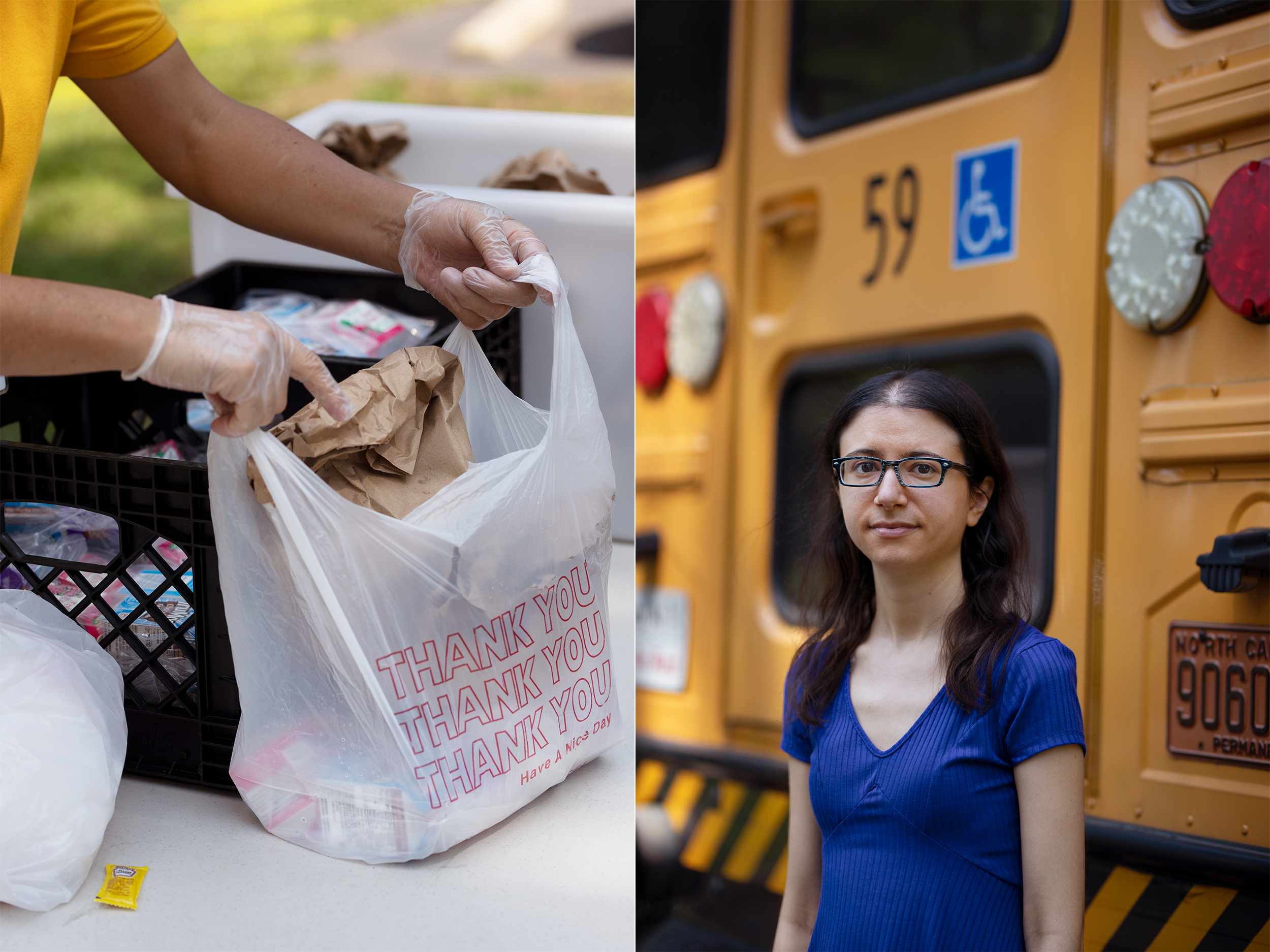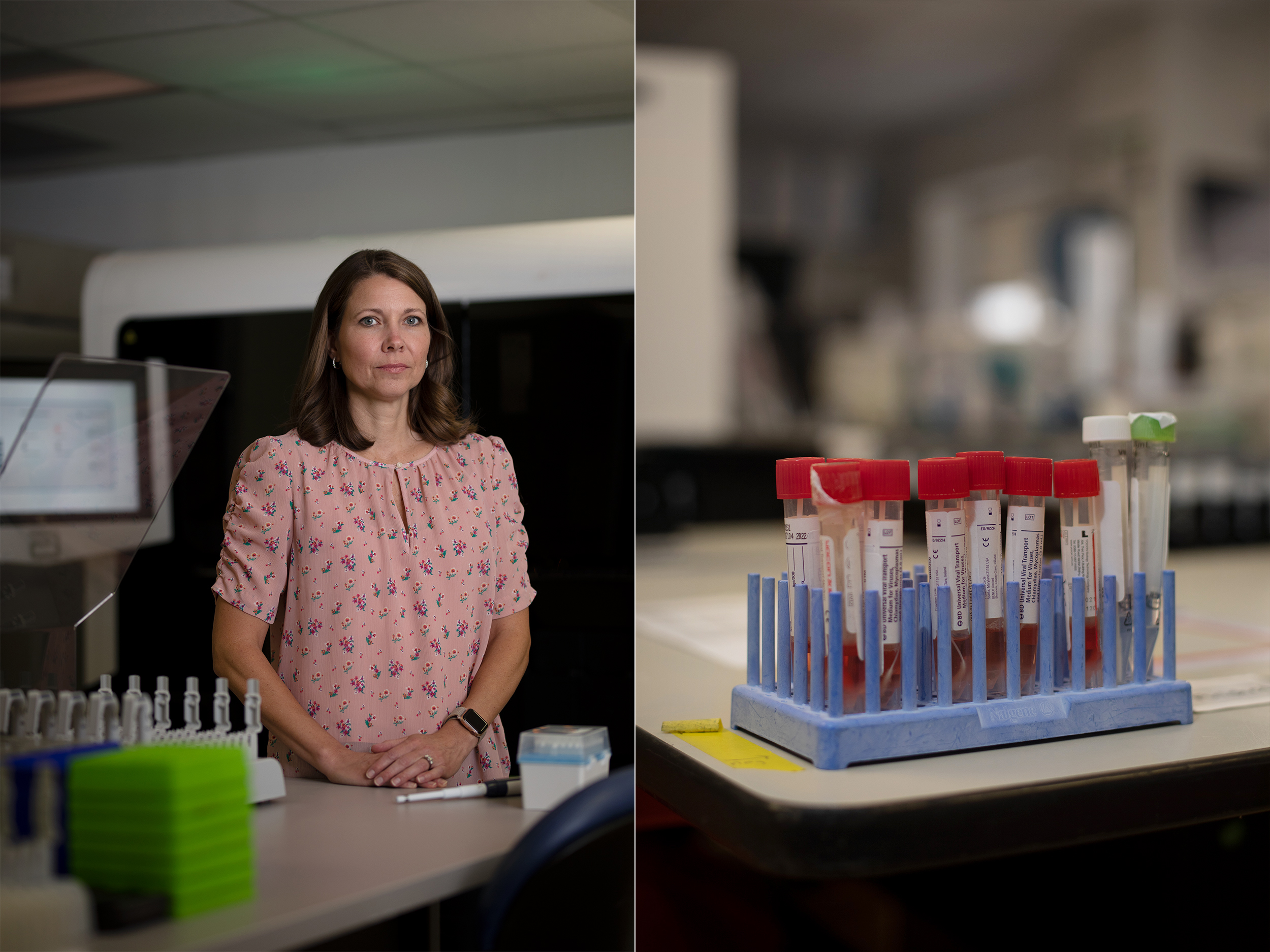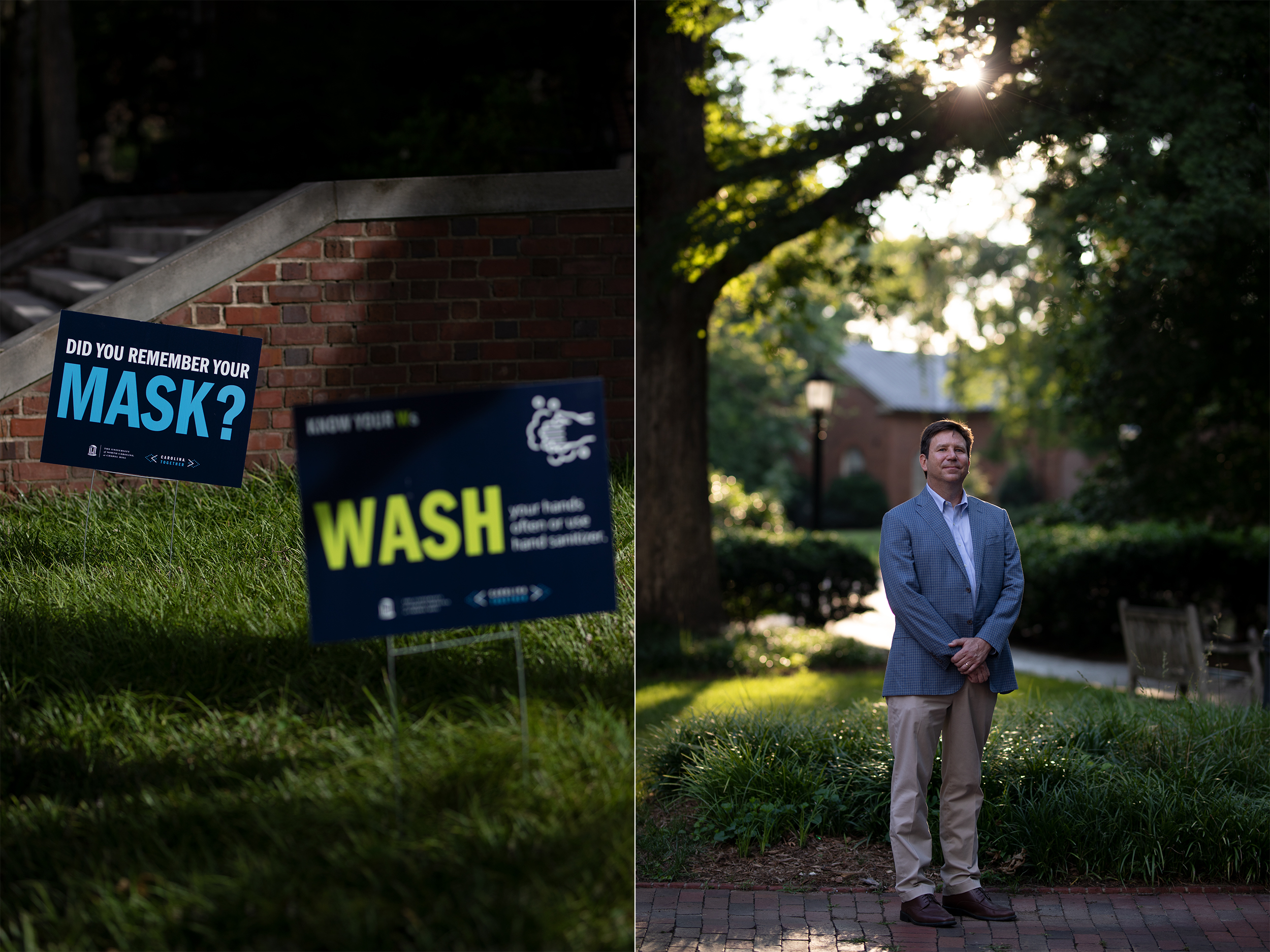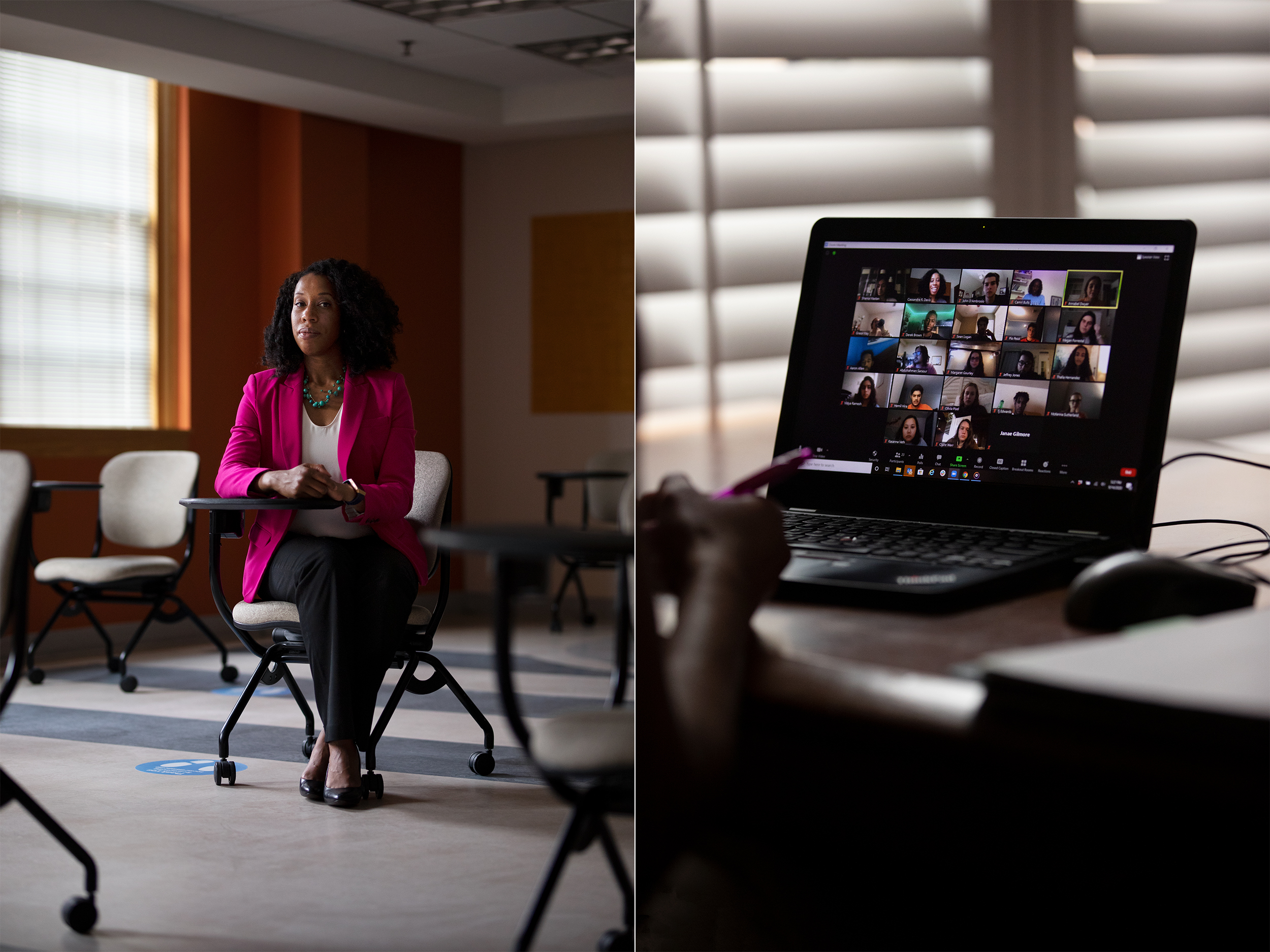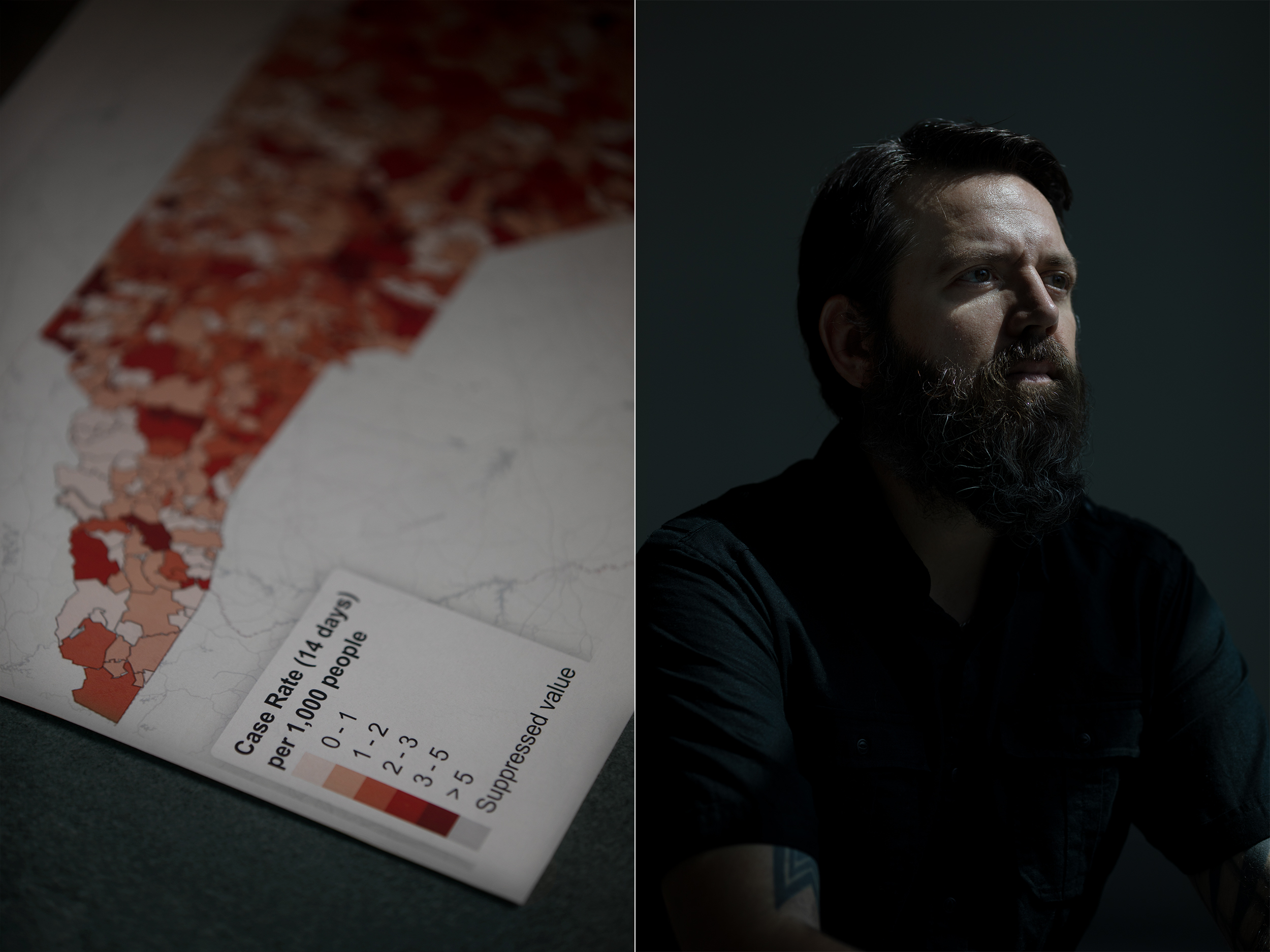Last spring, while businesses shut down and millions began working from home amidst the widespread outbreak of SARS-CoV-2 in the U.S., UNC researchers immediately shifted their focus to the virus and subsequent disease, COVID-19. Their quick response and strong foundation in infectious diseases, social science, and community-centered research propelled UNC to become a global leader of coronavirus expertise.
In nearly every school and department across UNC, researchers are examining the myriad of issues raised by the coronavirus pandemic. They are at the forefront of developing tests and therapeutics, monitoring the genetic evolution of the virus, and exploring future health impacts faced by COVID-19-positive patients. They are increasing access to resources for vulnerable communities, advising policymakers on public health measures, and uncovering the economic shockwaves that will continue for years to come.
As the United States — and the globe — combat the challenges this virus continues to present, UNC experts remain committed to research for the public good.
Jessica Lin | Infectious Diseases
Lin leads a study exploring how COVID-19 spreads within households after members are infected. “Of course I think about my and my family’s health, but this is my job. I think most people recognize that this is an unprecedented pandemic, and we all have to work together to do what we can. As a health care worker, I feel that sense of duty and am grateful to have an opportunity to contribute.”
Lori Carter-Edwards | Public Health Leadership, Epidemiology, Health Behavior
Carter-Edwards has been working with rural, Black, faith-based communities to create and disseminate messaging about the virus and available resources.“Right now, we have to immediately respond to a community’s needs. As researchers and public health professionals, we have a responsibility to get information out to people. We believe what we find here is going to be impactful and that we’ll be able to share it with a lot of folks.”
Barbara Turpin | Environmental Sciences and Engineering
Turpin is leading a study focused on how SARS-CoV-2 travels through aerosols — microscopic particles emitted when breathing, speaking, or singing — and how different factors like ventilation, sunlight, or even ozone can affect the virus’ viability through aerosol transmission. “I have no interest in getting anywhere near this virus, but we have this really novel air sampler that we can use for COVID work. I feel an obligation to do it because there’s something unique we could bring to the conversation.”
Ralph Baric | Epidemiology, Microbiology and Immunology, Cancer
Baric is a world-renowned coronavirus expert, leading and collaborating on multiple projects related to SARS-CoV-2 — from preclinical testing of antiviral drugs and therapeutics to understanding the basic science behind the virus’ replication. “In terms of rapid response and saving people’s lives, I think we’ve had a major impact globally. We’ve been able to help provide some weapons in the physicians’ tool chest to patients in need of therapy. With the number of projects we have — both past and present — our research enterprise is quite extraordinary in terms of breadth and impact.”
Sarav Arunachalam | Environmental Sciences and Engineering
Arunachalam is quantifying how reduced vehicular air emissions due to stay-at-home orders have affected air quality and public health. “At the end of the day, I think there’s a lot more to be done. There’s so much information coming out. I think we are in a phase of sensory overload of information, and it will take some careful thinking to understand how to separate the signal from the noise.”
Phillip Clapp | Environmental Medicine, Asthma, and Lung Biology
Clapp and his colleagues are measuring the efficacy of different masks in filtering air particles to inform hospitals about the effectiveness of sterilized, reused, and expired respirators. “The opportunity to step forward and work with a group of brilliant minds to address an immediate public health need — that was a blessing in the middle of this pandemic.”
Kia Caldwell | African, African American, and Diaspora Studies
In collaboration with Brazilian colleagues, Caldwell wrote an article for The Conversation and a longer paper for a Brazilian journal examining the impact of COVID-19 in Black communities in the U.S. and Brazil, focusing on the long history of racism and health disparities in both countries. “There’s urgency because people are dying in such high numbers right now. There’s not a vaccine. COVID-19 is something that affects all of us. I think there is a sense for folks in research that we all need to be paying attention to this. And if we have any skills we can lend to the fight, we need to bring them and share them.”
Jessica Soldavini | Nutrition
Soldavini studies food insecurity, federal nutrition programs, and community-based nutrition and cooking education programs. Since COVID-19 became widespread in the U.S., she has focused her efforts on analyzing food insecurity and how meal programs can best adapt during the pandemic. “I’ve got a lot going on right now but I don’t feel like I’m working because I love what I do. I just keep trying to think of more ways I can try and support these efforts.”
Melissa Miller | Pathology and Laboratory Medicine
In February, Miller’s team developed a diagnostic test for SARS-CoV-2 because commercial versions weren’t yet available. The lab now processes tests from UNC Health facilities across the state and recently passed their 100,000-test mark. “Putting out 1,000 tests a day has truly impacted our community, not only in terms of trying to limit the spread of SARS-CoV-2, but the ability to do research. To identify interventions or to study transmission patterns — it all starts with the test – and the impact of that is not measurable.”
Marc Hetherington | Political Science
Hetherington and colleagues are working with peers from other UNC System schools to survey opinions about public health measures — like face masks and vaccines — and working with community partners on COVID-19 public service announcements. “On our current team we have public health people, sociologists, political scientists, and social workers. I’ve never been part of a collaboration that’s anything like this. It feels great to try to take advantage of bringing together all these types of people with different expertise under the same umbrella.”
Cassandra R. Davis | Public Policy
Davis is identifying challenges faced by first-generation college students to address their unique needs and shape school policy by conducting surveys among first-generation students at universities across the country. “What keeps me going, what keeps me returning to my computer at 2 a.m. is the fact that this information will help. I think of my first-generation students. If it’s going to make some bit of a difference to ensure that these students are supported, then that’s what I need to do.”
Paul Delamater | Geography
Delamater has created a website providing up-to-date estimates and future forecasts of SARS-CoV-2 infections and COVID-19-related hospitalizations in the state, including an interactive map that breaks down recent infection rates by zip code. “I study health care, vaccination, and disease risk from a geographic perspective. All of those things are important for understanding what’s happening in the U.S. and North Carolina for COVID-19. And so, while the pandemic has been this awful situation, I’m in a unique position where I can use all my skills to try to help understand it.”


